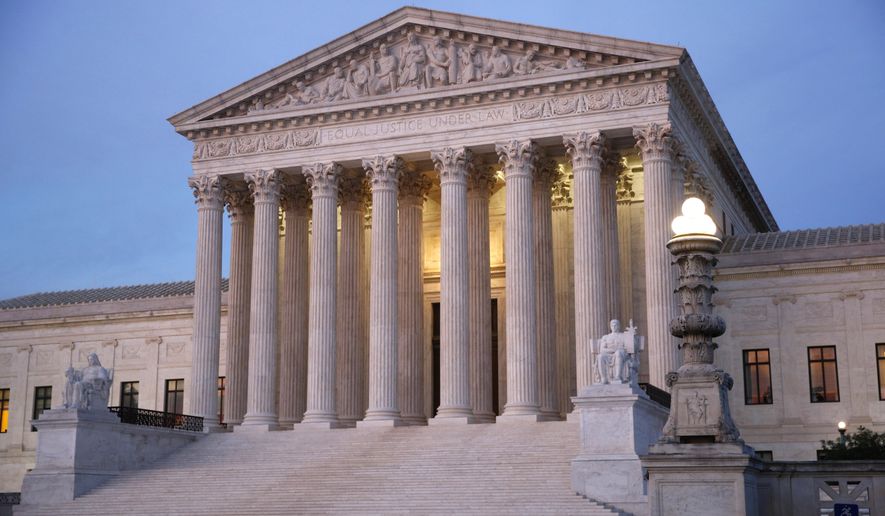The Supreme Court rejected a case Monday brought by an atheist who wanted to scrub “In God We Trust,” the U.S. motto, from the nation’s currency, claiming it was an entanglement of state and religion.
Michael Newdow, an activist who previous challenged reciting the Pledge of Allegiance in schools, had set his sights on money, but lost at the district, circuit and now Supreme Court levels.
On behalf of a group of atheists, Mr. Newdow argued America’s money lacked an reference to God until 1864, when it was added in. He said that amounted to an endorsement of religion.
“By mandating the inscription of facially religious text … on every coin and currency bill, defendants have turned petitioners — among whom are nine children — into ’political outsiders’ on the basis of their most fundamental religious tenet,” he argued in his petition to the Supreme Court.
The justices rejected his petition without comment.
The 8th U.S. Circuit Court of Appeals in its ruling last August against Mr. Newdow said the Establishment Clause of the Constitution doesn’t force the government to purge itself from all religious reflection.
“Precluding general references to God would do exactly that,” the federal appeals court ruled.
Mr. Newdow lost a similar challenge in 2014 when the 2nd U.S. Circuit Court of Appeals ruled against a previous effort to strip the motto from currency. Four other appeals courts, dealing with the issue before, also have upheld the motto’s place on American money.
The activist has also launched a series of other legal challenges, attempting to separate religion from the public sphere. Some of his well known battles include trying to halt the Pledge of Allegiance from being said in public school due to the phrase “under God,” and also trying to stop prayers and religious references at the inaugurations of Presidents George W. Bush and Barack Obama.
Becket Religious Liberty for All, a religious liberty focused law firm, said the high court made the right move by dismissing Mr. Newdow’s challenge Monday.
“The result is the right one, but the multiyear process is a grand waste of time and money,” said Eric Rassbach, an attorney for Becket.
He said it’s time for the Supreme Court to revisit the “Lemon test,” a framework the Supreme Court laid out in a 1971 case for reviewing when a government’s action crosses the line into unconstitutional religious entanglement. Under the Lemon test, an action must have a secular purpose, must not advance or inhibit a religion, and must avoid “excessive government entanglement with religion.”
Mr. Rassbach said the Lemon test invites cases like Mr. Newdow’s.
The Supreme Court has a chance to retire the Lemon test in another case this term involving a nearly 100-year-old war memorial cross in Bladensburg, Maryland. The Peace Cross, which stands on public land, is dedicated to local soldiers who died in World War I.
Justice Neil M. Gorsuch, during oral argument in that case, suggested Lemon’s usefulness was at an end.
“It’s been a long time since this court has applied Lemon,” Justice Gorsuch said. “Is it time for this court to thank Lemon for its services and send it on its way?”
A decision in the Peace Cross case is expected by the end of the month.
• Alex Swoyer can be reached at aswoyer@washingtontimes.com.




Please read our comment policy before commenting.